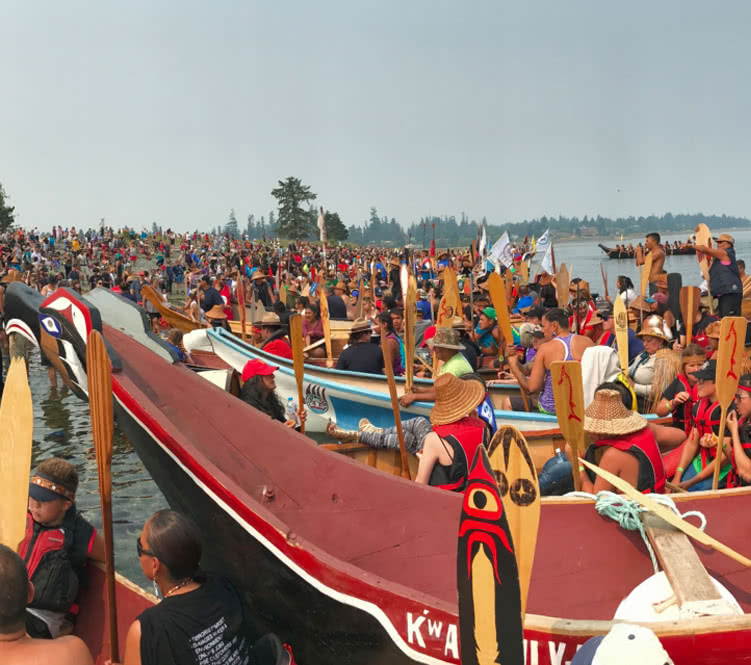The Tribal Canoe Journey is an annual voyage and gathering of Indigenous nations from the Pacific Northwest. Each year, participating First Nations depart from their own communities and travel along the coast to the nation hosting the final destination, stopping each day at a participating First Nation community. This year, at the invitation of Sc’ianew (Beecher Bay) First Nation, WCMRC participated as a support boat from July 25 – August 5.
Approximately 67 different Indigenous nations were represented on this year’s journey. While the majority were from the Pacific Northwest, there were also representatives from Mexico, Mohawk, and other Indigenous nations from eastern Canada and the U.S. In all, over 100 canoes participated in this year’s journey.
As the canoes approach the shore, they ask the host community for permission to land in their territory. The community will host a feast for all the paddlers and support crew. Each night, the support boat captains will meet to discuss the best time to leave the following morning based on tides and local currents.
This was the second year that WCMRC provided a support boat for the Tribal Journey. Our crew was certainly needed on the journey. At Dodd’s Narrows, another support vessel lost power while trying to tow a canoe through the current. WCMRC’s Island Sentinel provided back-up support and towed the boat and canoe through the narrows. In all, between five and six canoes were towed at various times to help tired paddlers through some of the heavier currents. As well, our crew’s knowledge of local waters and currents provided valuable information to the canoes and support boats from other parts of the coast. Advice that ensured canoes and support boats steered clear of shoals and other hazards. For example near Cape Mudge, Captain Bill Poustie’s familiarity with the area proved valuable as he was able to show paddlers where to head to avoid rip tides and to keep off the shoals.
It was a valuable opportunity for WCMRC to support some our partners on this amazing journey. Not only were we able to support canoes and keep them safe, but our crews got to experience First Nations’ culture through the drumming and singing of welcome songs in each community.

